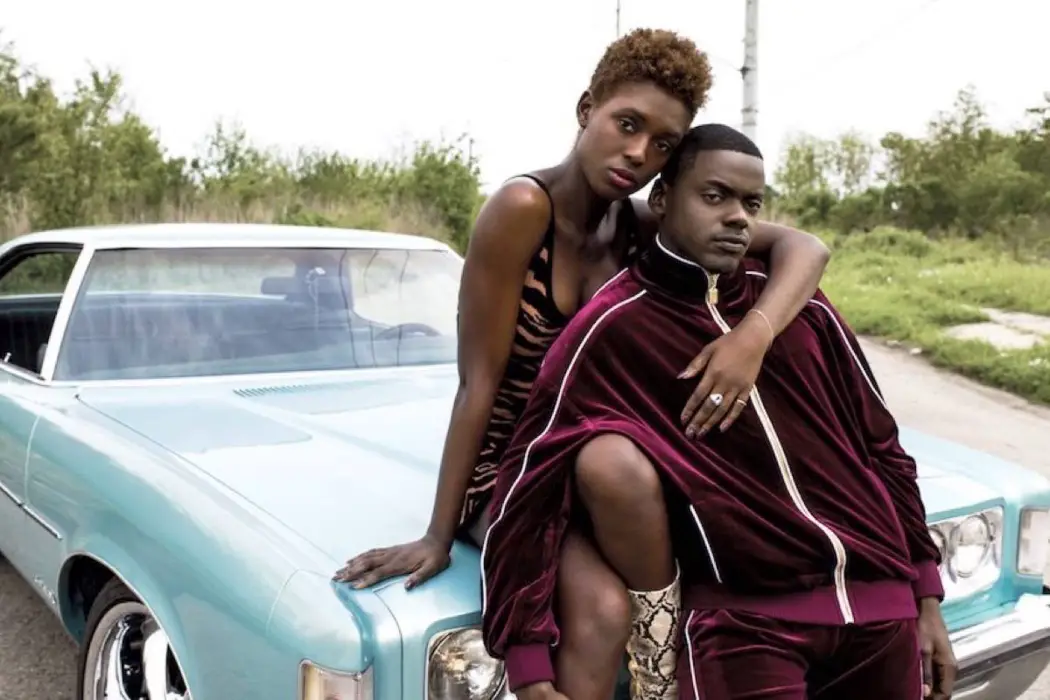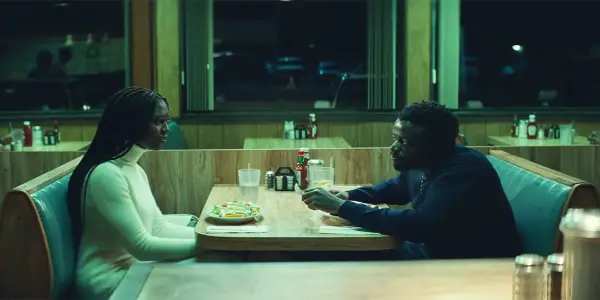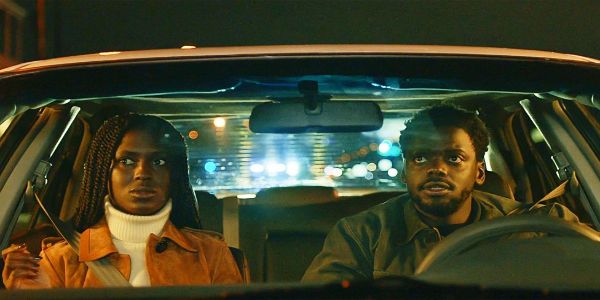Redefining The Road Movie: QUEEN & SLIM

Liam is a freelance writer and content creator based in…
The great American road trip is always a personal journey. It’s a drive into the unknown and an act of rebellion, in which the main characters are forced to navigate a major crisis. There are often run-down motels, gas stations and angry highway patrollers in hot pursuit. From Easy Rider to Thelma and Louise, road trip movies have been a staple in cinema for decades. Melina Matsoukas’ Queen & Slim takes the genre in a new direction, (from a script by Lena Waithe); it follows in the footsteps of a long line of road movies but adds its own original flavour. Set against a political backdrop, blending relevant drama and the soul of the 1970s, Queen & Slim is a powerful piece of work.
On the Road
When Queen & Slim was released in 2019, many critics labelled it modern-day “Bonnie and Clyde”. In the first act, it seems like it could be heading that way, but the film becomes a social commentary on the justice system, using the “road movie” formula as the vehicle for exploring important issues in American society. Bonnie and Clyde were famously criminals that robbed banks, but the characters in Queen & Slim are regular people, caught in the wrong place at the wrong time. The film begins in a diner with a rather boring first date between Queen (Jodie Turner-Smith) and Slim (Daniel Kaluuya). There’s a lack of chemistry between the pair and it’s pretty clear they won’t be seeing each other again. But things get even worse on the drive home when a police officer pulls them over for a minor traffic violation. The cop is aggressive and violent and Slim ends up killing the officer in self-defence, and the incident is all captured on camera. This sparks a chain of events where Queen and Slim become unintentional outlaws on the road, fighting for survival.

Queen & Slim departs from other road movies yet while maintaining the spirit of the genre. It’s a film with a deep emphasis on cultural history and it challenges perspectives, telling a story about two people who are forced to take drastic measures and traverse the open road. They’re not counter-cultural icons or symbols of liberation; they’re the face of a nationwide manhunt and perceived as dangerous by the general public. This is what makes Queen & Slim such a great subversion of traditional road movies because here, heroism is a matter of context – and the lawless couple are villains in the eyes of the media. The film stands as a modern update on the road movies of bygone years.
In Thelma & Louise, Ridley Scott depicts the highway as a place of power and freedom, and the two main characters are symbols of female agency. It’s the kind of road movie audiences know and love. Moreover, the rebellion of the open road can be seen in Andrea Arnold’s American Honey, in which Sasha Lane’s Star joins a ragtag group of kids who travel the country, making money by hustling magazine subscriptions door-to-door. The film explores youth culture and tells a story about young people who deal with their problems through escapism on the road. Both American Honey and Thelma & Louise have a cool looseness and sense of spontaneity like there are endless possibilities.
Speaking of free-flowing narratives, no road movie does it better than Dennis Hopper’s Easy Rider – a 1960s cult classic that marked a turning point in the film industry. It’s a counterculture film about two bikers who travel through the American Southwest. Shot in a low-budget, documentary style, Hopper tapped into the sentiment of the time and ushered in a new era in Hollywood where directors were given complete control of their movies. Interestingly, Queen & Slim and Easy Rider do share some similarities. Both focus on two characters who appear indifferent to each other, and their respective soundtracks elevate the films. However, Easy Rider remains a mediation on personal authority and uses the open road as a signifier for freedom.
Representations
Does this mean Queen & Slim’s portrayal of the open road is much more negative? While there’s an element of hope in most road movies, the story of Queen & Slim creates a strong feeling of entrapment. It’s a bleak film that doesn’t show signs of a way out for the two protagonists, as though the road represents the danger they’re trying to escape. There’s still enough room for romance, though, and it’s delicately handled. Queen and Slim have an intense bond that shapes the movie, which has an archetypal structure, representing the hopes and fears of society and its people. Road movies, over the years, have always explored identity, but in Queen & Slim, we don’t even learn the characters’ real names until close to the end and the nicknames stated in the title are never mentioned. There’s great emotional power at play here in that Queen and Slim could potentially be anyone.

This is a film that’s been both praised and denounced in equal measure, but there’s no denying that it’s a bold movie that tackles difficult subjects with a great deal of urgency. With the awkward chemistry between the two leads and the inescapable sense of entrapment on their trip into the deep South, Queen & Slim is a rare, interesting take on the road movie formula. Much of it is largely fantastical, as the couple become public figureheads in a matter of days. But by the final act, Queen & Slim drives its commentary on culture with raw honesty and the message stays with you.
Does content like this matter to you?
Become a Member and support film journalism. Unlock access to all of Film Inquiry`s great articles. Join a community of like-minded readers who are passionate about cinema - get access to our private members Network, give back to independent filmmakers, and more.













